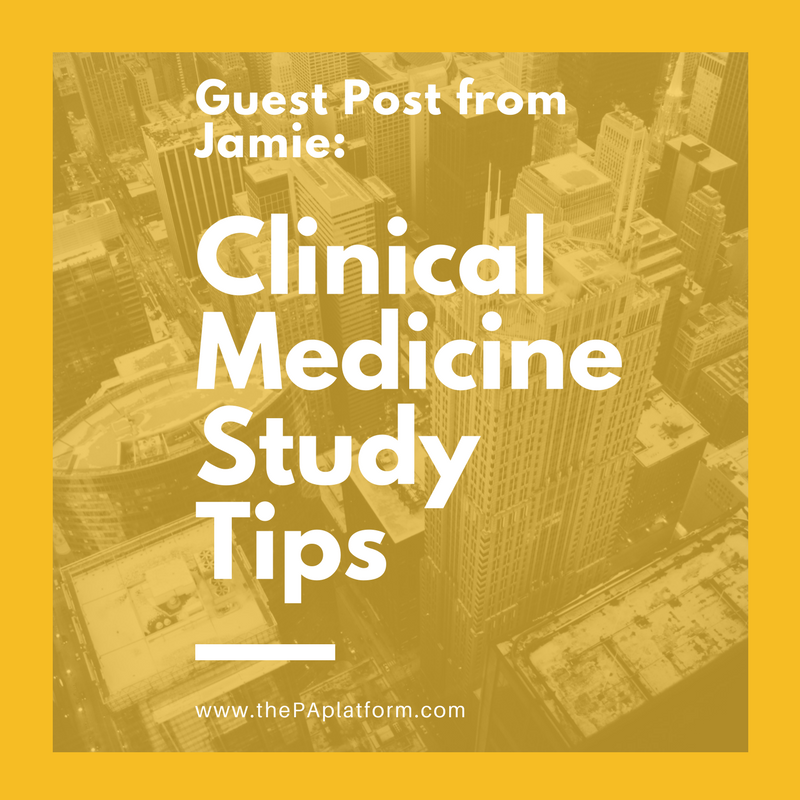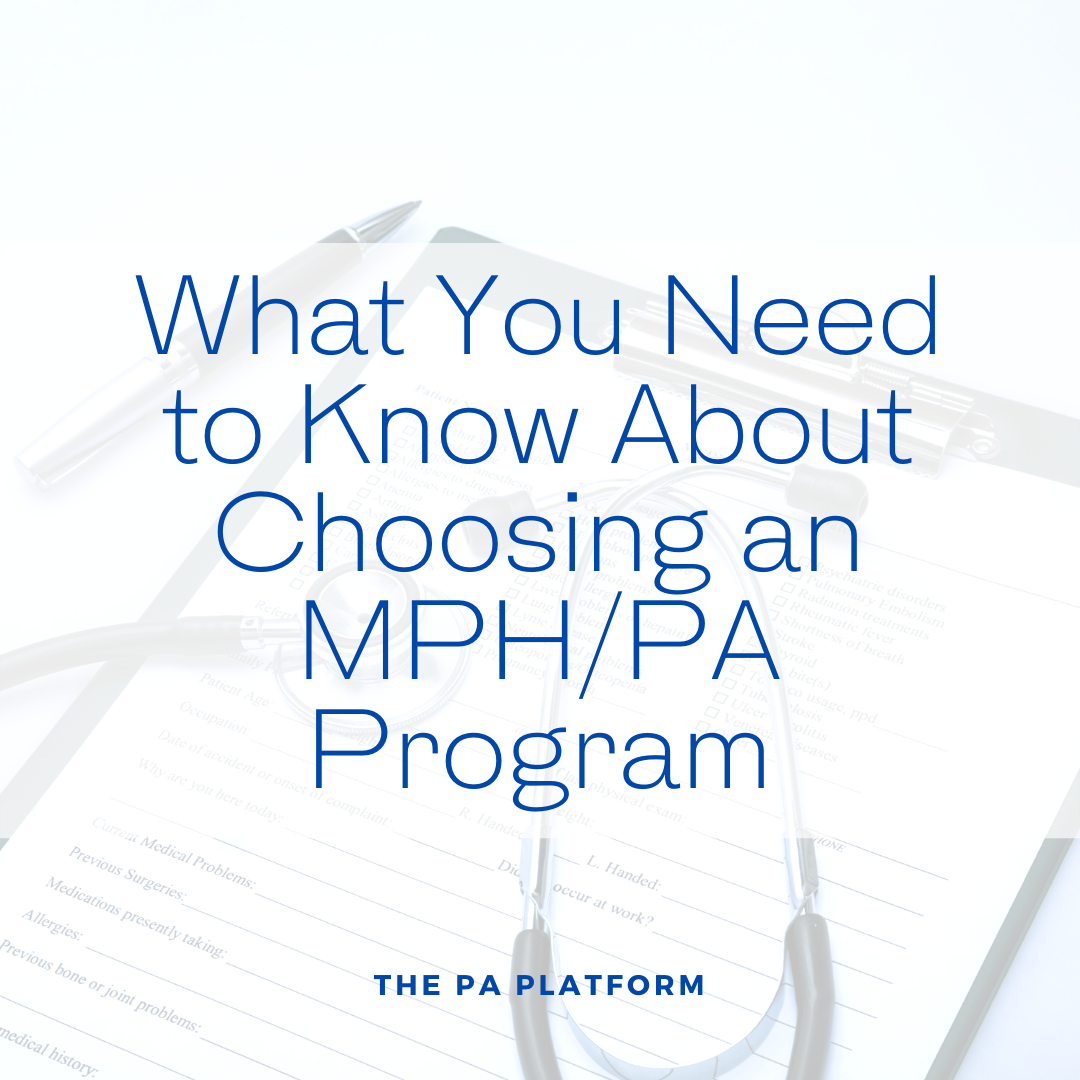Jamie's back guys! Today, she is sharing some of her Clinical Medicine Study Tips to help you succeed during didactic year of PA school. You may remember her previous posts, but check them out if you haven't already! - The Unexpected Costs of Interviewing and Attending PA School, Letters of Recommendation: How Do You Ask? and How Do You Get a Good One? and What's in My Medical Bag? Some of the links in this post are affiliate links, which means Jamie will get a few cents from Amazon if you purchase one of her recommendations!
For Clinical Medicine:
I always read the relevant chapter of Pathophysiology Made Ridiculously Easy before we start a unit.
Then I take notes from the PowerPoints. I reformat my professor’s PowerPoint slides into a format that suits my study technique. For me, that means creating a new PowerPoint document organized the same way as the book.
I try to keep each disease or disorder to one page, but sometimes they spill over. I typically start with epidemiology and pathophysiology, followed by clinical presentation, relevant labs or imaging, treatment and then complications.
Some of my classmates make charts instead in Microsoft Word. They’ll do diseases down the first column and then the columns following will be:
- “Etiology” (who gets the disease)
- “Pathophysiology” (why the disease happens)
- “Signs and Symptoms” (what brings them in)
- “Diagnosis” (labs and imaging needed to confirm)
- “Treatment”
- “Complications”.
I spend about a week creating this document and then I print it. Everything typed is guaranteed to be from the lectures, which makes it easy to reference when I study.
These are the books I use to supplement my notes as I go:
- PANCE Prep Pearls (the 2nd edition just came out and I love that sweet, sweet index). If you’re a PA student and you don’t own PPP, you’re doing something wrong. It’s like a super condensed version of everything you need to know. Great review before an exam, great way to highlight your own notes with the absolute most important stuff.
- Step-Up to Medicine (worth buying new to get the physical copy AND the eBook). I love this book, very well organized and just the right amount of depth. It’s technically a USMLE Step 2 Prep Book but it’s perfect clinical medicine! This book has more pathophysiology and epidemiology than PPP.
Once my notes are printed, I go through with multiple pens and highlighters. I highlight the top of the slide based on its importance level on the NCCPA’s PANCE Blueprint. Then I handwrite in additional notes from the books I recommended above. They’re color-coded by source so I know where I got each piece from (everything typed is always from my professor’s notes, and then handwritten comes from Current Medical Diagnosis and Treatment (the course text, in dark blue), Step Up (green), and PANCE Prep Pearls (pink). I usually don’t add any written notes from Patho Made Easy, but I do read it before a unit starts and again the night before an exam. This takes me about one full hardcore day of studying. Anywhere from 10-12 hours. I usually will take two or three days to do it, unless I’ve done a lot of procrastinating, and then I’ll sit down and do the entire thing in one day instead.
I spend about a week creating the typed study guide, about a week adding notes, and then a week studying what I’ve created and taking practice exams. For practice exams, I like the following:
Lange Q&A Physician Assistant Examination. This technically goes with the course book, but there are a lot of mistakes in treatments and labs. It seems outdated for about 10% of the questions. For this reason, it’s usually the last test I take. It does have full explanations for each answer at the back of each section, though, and the added bonus that it’s a physical book. I like real paper. All of our exams are online, though, which brings me to my next recommendation:
SmartyPANCE! I LOVE their practice tests. They are broken down by subject, so you can use them before an exam to see how you’re doing. It also has a review by subject with “pearls”.
The other review site I recommend is HippoEd. Same thing, they have study materials and videos, and practice exams broken down by subject. I find them to be a little more challenging than SmartyPANCE and usually take these closer to the unit exam.
Finally, a lot of people really like Rosh Review, but I consistently score 55-60% on every exam I make for myself, which is terrible for my self-esteem. I did not purchase after my free trial expired. Some of my classmates don’t mind the difficulty because of how amazing the answer breakdown is. I love that it tells you how you compared to other people taking the exams, so you can see, “Okay, well I got this wrong, but so did 72% of the other people” or “Well, I’m the only 1% that answered this question this way, so clearly I need work on this.” It’s helpful for sure, but like I said, proceed with caution in terms of confidence before an exam!
Hi all. Thanks for reading! I'm Jamie Murawski, a physician assistant student at the University of Detroit Mercy. I have a Bachelor of Science from Grand Valley State University. I'm a Michigan girl through and through.
I'm growing my online presence in the PA community through Reddit, where I moderate /r/prephysicianassistant along with some other pretty cool PA students. I also have an Instagram where I pseudo-blog about my journey (@jamienicole_pa.s). Please feel free to follow me or message me with any questions, I'm happy to help!





















